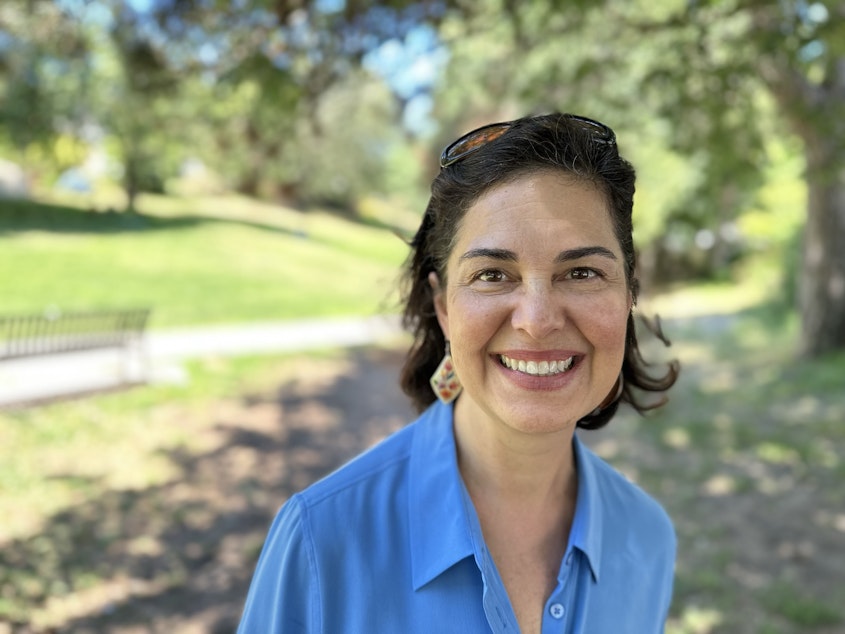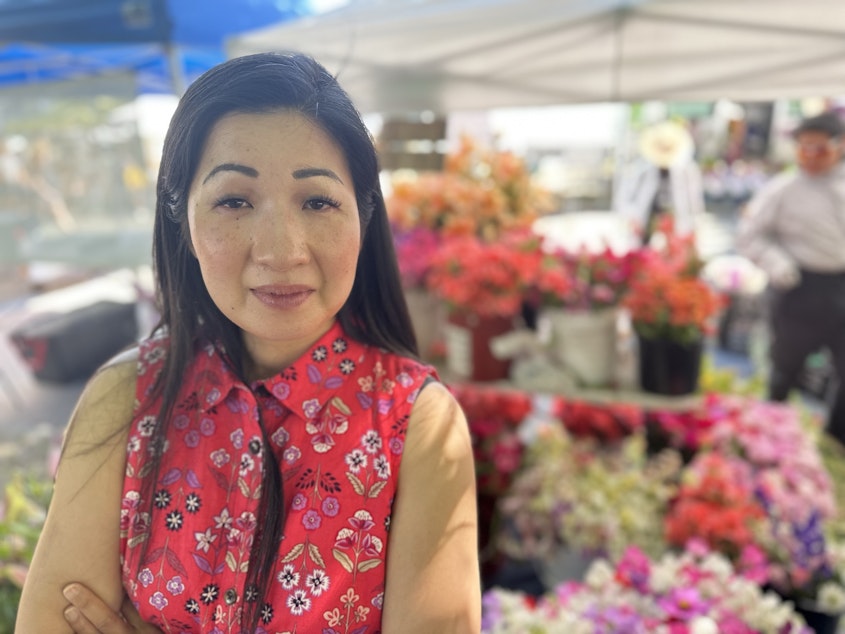Is the 'generation gap' back in Seattle City Council races? District 2 offers clues

Theo Martin is stirring a giant pot of gumbo and talking about Seattle politics at his Columbia City restaurant, Island Soul.
Martin said he loves serving Caribbean-inspired soul food to the neighborhood. But these days, he sometimes feels politically out of step with newer, younger residents.
He tells a story to make a point about the time a homeless man was asking his customers for money. Martin asked the man to please move on, but a younger customer started yelling at Martin and accused him of being a “bad neighbor," he recalled.
“That's what made me just stop and go, 'Well, OK,” he said.
Martin sees a similar generational split over city politics. He believes the city has gotten too permissive and needs to focus on public safety issues, and crack down more on things like public drug use. He also supports Mayor Bruce Harrell's efforts to remove more homeless encampments and RVs.
Sponsored
Martin said most of his family and longtime Seattle friends tend to see a lot of issues as he does. But newer and younger residents, less so.
Seattle political consultant Ben Anderstone said Theo Martin’s experience corresponds with some recent election data.
"There's a pretty big generational gap in national politics, but it pales in comparison to the generational gap we see in local Seattle City Council elections,” Anderstone said.
According to Anderstone, in recent elections, neighborhoods with more voters over the age of 50 tended to vote more moderate. Meanwhile, neighborhoods like Columbia City, which has seen an influx of younger voters, back more left-leaning council candidates and issues.
Columbia City is now arguably the most progressive neighborhood in Seattle, Anderstone said. His evidence includes overwhelming voter support for progressive initiatives like the recent Social Housing Initiative 135.
Sponsored
KUOW headed to the Columbia City Farmer's Market, a few minutes' walk from Martin's Island Soul restaurant, to speak with voters for this story. Residents expressed a wide range of opinions that reflected Seattle’s larger political divides.
But many younger residents did sound further left on key issues, including public safety and homelessness, and said they planned to vote accordingly.
Brand Mace, for example, is in her 20s and has lived in Seattle for just a few months. Mace opposes the city's efforts to remove homeless encampments and doesn’t think police should arrest people for public drug use. She also said, in general, police do not make people safer.
“If anything, they'll cause more harm.” Mace said. She favors reducing Seattle police funding, so money can be “redistributed to the communities, because we can keep each other safe.”
It's not clear how generational divides on these issues will play out this year in Columbia City, or the rest of City Council District 2, which stretches from the Chinatown-International District down to Rainier Beach. But District 2 candidates are giving voters options that could speak to those generational and political divides.
Sponsored
Incumbent Tammy Morales, who is originally from San Antonio, Texas and was first elected in 2019, tends to side with City Council's more progressive wing. She recently voted against a crackdown on public drug use and possession, for example.
“Harm reduction strategies are the way to start addressing some of those public use disorder challenges that we see on the street,” Morales said, pointing to her background in the field of public health.
Morales also rejects Mayor Harrell’s policy of stepped-up homeless encampment sweeps. Additionally, Morales told KUOW she’d vote to reduce police budget funding if it’s the only way to fund programs to address the root causes of crime and alternatives to policing.

Morales' most prominent opponent is an activist in the Chinatown-International District, Tanya Woo, who grew up on Beacon Hill and currently lives in Rainier Beach. Woo traces her family's Seattle roots to 1887 and said her family operated the first Chinese bakery in the city.
Sponsored
Woo is running on a more moderate platform and was endorsed by the Seattle Times. She told KUOW she believes the current City Council doesn't listen carefully enough to all of the voices in District 2, including “communities of color.”
“How do we amplify community voices, and really talk to people and do what people want?” she said.
On the issues, Woo said some District 2 voters are calling not just for harm reduction and police reform, but also for more encampment removals and drug enforcement.

Another candidate for District 2, Margaret Elisabeth, is the only Green Party activist and eco-socialist in the race. On the question of policing, Elisabeth said the focus needs to be turned toward serious crimes, like investigating sexual assaults, as opposed to clearing encampments or enforcing drug laws.

Sponsored
For his part, Theo Martin said he’s still making up his mind about who he'll vote for in this year's primary.
“People say, 'Vote, vote, vote.' A lot of us are voting, voting, voting. But voting for what? I'm still learning myself,” he said.
There's still time to decide for this primary, with ballots due in drop boxes or postmarked by Aug. 1.
Which generations turn out to vote in greater numbers could make the difference, not just in District 2, but all over the city.




